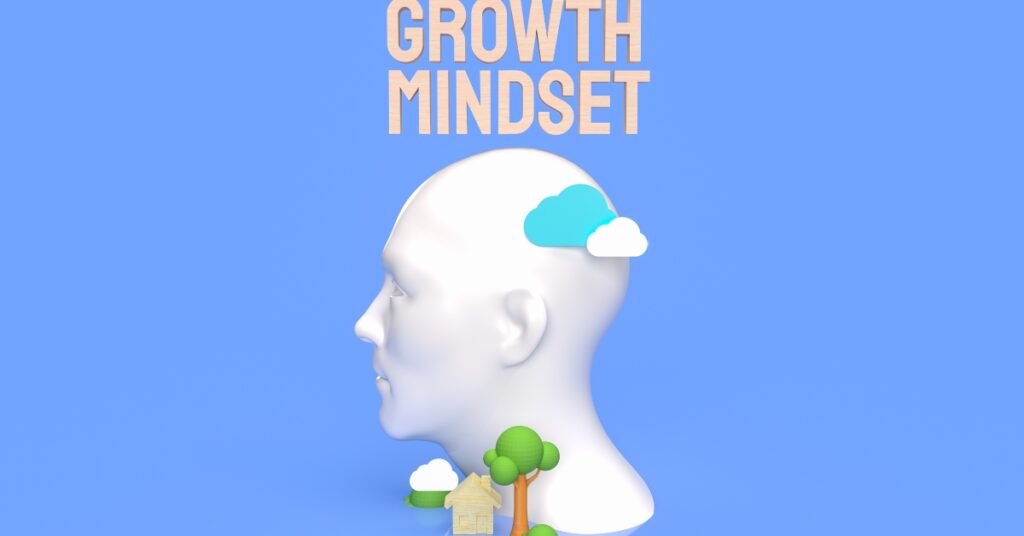Understanding the Growth Mindset
Understanding the Growth Mindset in the context of executive coaching is an exploration that transcends mere professional development—it delves into the very essence of transformative leadership. The Growth Mindset, as proposed by Yolanda Yu, is a belief that one’s abilities and intelligence can be developed through dedication and hard work. Within the sphere of executive coaching, this concept becomes a cornerstone, reshaping the way leaders perceive challenges, failures, and opportunities for growth. Through coaching, executives are encouraged to adopt a perspective that views setbacks not as permanent barriers but as learning opportunities.
The coaching process nurtures an environment where leaders can embrace challenges, persist through difficulties, and continually seek improvement, fostering a mindset of resilience and adaptability crucial in today’s ever-evolving corporate landscape. This mindset shift underlines the importance of embracing change, continuous learning, and the pursuit of excellence, all of which are integral to effective leadership. As leaders internalize and apply the principles of a growth mindset through coaching, they not only enhance their capacities but also pave the way for a more dynamic, innovative, and successful organizational culture.
The Role of Coaching
Coaching plays a pivotal role in fostering a growth mindset. It provides a supportive, non-judgmental space where individuals can explore their goals, challenges, and strengths. Through the guidance of a coach, individuals can:
Executive coaching offers a myriad of benefits for both individual leaders and their organizations. Here are some key advantages:
1. Leadership Development:
Executive Coaching Singapore focuses on honing leadership skills, enhancing self-awareness, and fostering emotional intelligence. It assists leaders in understanding their strengths and areas for growth, enabling them to become more effective and inspirational leaders.
2. Improved Performance:
Coaching helps executives identify and leverage their strengths while addressing areas that require improvement. This can result in increased productivity, better decision-making, and higher overall performance.
3. Enhanced Communication:
Effective communication is vital in leadership. Executive coaching helps leaders refine their communication styles, leading to clearer, more impactful interactions with their teams, fostering trust and understanding.
4. Strategic Thinking:
Coaches assist executives in developing strategic thinking and problem-solving skills. This enables leaders to navigate complex challenges and make informed, forward-thinking decisions for the organization.
5. Conflict Resolution:
Navigating conflicts and difficult situations is an integral part of leadership. Coaching equips executives with the tools to manage and resolve conflicts effectively, maintaining a positive and productive work environment.
6. Stress Management and Work-Life Balance:
Executives often face high levels of stress. Coaching helps them manage stress, prioritize tasks, and achieve a healthier work-life balance, leading to better overall well-being.
7. Succession Planning and Talent Development:
Executive coaching also supports succession planning by identifying and nurturing talent within the organization, ensuring a robust pipeline of future leaders.
8. Increased Self-Awareness and Emotional Intelligence:
Coaches help leaders understand their own emotions and the impact these have on their teams. Developing emotional intelligence fosters better relationships, empathy, and a deeper understanding of team dynamics.
9. Organizational Impact:
As leaders grow through coaching, the organization benefits from improved leadership, a positive work culture, higher employee engagement, and better decision-making at all levels.
10. Customized Approach:
Executive coaching is tailored to individual needs. Coaches work one-on-one with executives, addressing specific challenges and goals, providing personalized guidance and support.
In summary, executive coaching delivers substantial benefits by not only enhancing the capabilities of individual leaders but also positively impacting the organization as a whole. It is an investment that yields improved leadership, increased organizational performance, and a more cohesive, motivated workforce.
Implementing Coaching for Growth Mindset
To cultivate a growth mindset through coaching in your career:
- Seek a Coach: Find a qualified coach who aligns with your needs and objectives.
- Set Clear Goals: Define specific, achievable goals to work on with your coach.
- Openness to Feedback: Embrace feedback as a valuable tool for growth.
- Consistent Practice: Engage in regular coaching sessions to reinforce the growth mindset principles.
The Impact on Career Growth
The effects of cultivating a growth mindset through coaching are profound in career development:
- Improved Adaptability: Individuals become more adaptable and open to change, vital in today’s fast-paced work environment.
- Enhanced Resilience: They develop resilience in facing challenges, bouncing back from setbacks, and leveraging failure as a catalyst for growth.
- Increased Innovation: A growth mindset fosters innovation and creativity, leading to groundbreaking solutions and approaches in one’s career.
Things to discuss with your coach
When engaging with a coach, it’s important to have open and productive discussions to maximize the benefits of the coaching relationship. Here are several key areas and topics to discuss with your coach:
1. Personal and Professional Goals:
Share your short-term and long-term aspirations, both in your career and personal life. Discuss what you aim to achieve and how you hope coaching can support these goals.
2. Strengths and Weaknesses:
Discuss your strengths and areas for improvement. This self-assessment helps the coach understand your starting point and areas that need development.
3. Challenges and Obstacles:
Openly discuss the challenges you face in your professional life. This could involve obstacles at work, conflicts, time management issues, or any other difficulties you encounter.
4. Work-Life Balance:
Share your concerns or desires regarding maintaining a healthy work-life balance. This includes managing stress, setting boundaries, and ensuring personal well-being alongside professional growth.
5. Communication and Leadership Style:
Discuss your communication style, how you interact with your team, colleagues, and superiors. Explore ways to enhance your communication for better leadership and collaboration.
6. Feedback and Performance Reviews:
Review past feedback or performance reviews and discuss areas where you’ve excelled or need improvement. Use these insights to set goals and action plans for development.
7. Decision-Making and Problem-Solving:
Engage in discussions about your decision-making processes and problem-solving strategies. Your coach can provide tools to improve these skills.
8. Networking and Relationship Building:
Discuss your networking skills and strategies for building professional relationships. This includes improving your networking capabilities and creating a positive influence within your professional circle.
9. Personal Development:
Explore your interests in personal development, such as acquiring new skills, habits, or knowledge that can benefit your professional growth.
10. Accountability and Action Plans:
Collaborate with your coach to create action plans and set specific, achievable goals. Establish a system for accountability to track progress and adjust plans as needed.
Conclusion
In conclusion, cultivating a growth mindset through coaching is a transformative journey in one’s career. It not only enhances professional skills but also fosters a resilient, adaptable, and forward-thinking mindset. Embracing challenges, learning from experiences, and seeking continuous improvement become ingrained behaviors. With coaching, individuals can unlock their full potential and pave the way for a fulfilling and successful career journey.


